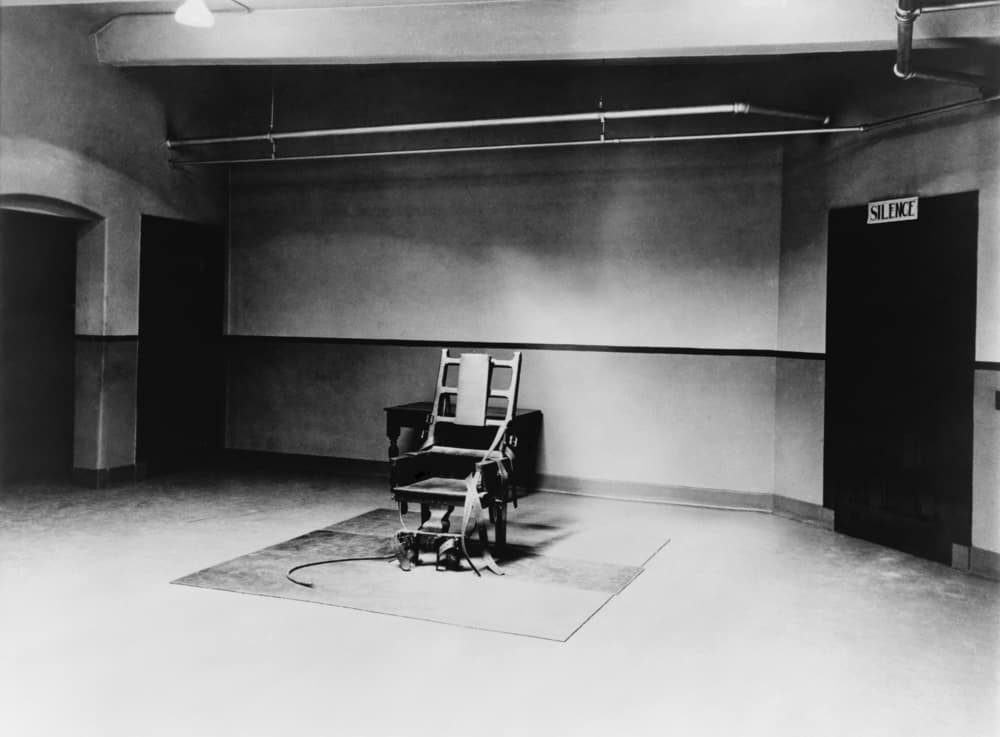Dear Father, with the sad news that two Australians have been executed overseas for drug trafficking, I would like to ask whether the Church has an official position on the death penalty.
The Church does have an official position which has changed somewhat over the years, becoming more and more firmly against it, while still allowing for it in very limited circumstances.

We should remember that the Old Testament lists at least 36 different offences punishable by death.
They include murder (Gen 9:6), kidnapping (Ex 21:16), striking or cursing one’s parents (Ex 21:15), stubborn disobedience to a priest or even to one’s parents (Deut 17:12, 21:18-21), idolatry (Ex 22:20), violating the Sabbath (Ex 35:2), blasphemy (Lev 24:10-16), human sacrifice (Lev 20:2), divination which applied to witches, sorcerers, wizards, mediums, soothsayers, diviners, etc. (Ex 22:18), adultery (Lev 20:10-21), bestiality (Ex 22:19), incest (Lev 18:6-17), homosexual acts (Lev 18:22), premarital sex (Lev 21:9) and rape (Deut 22:25-27).
In the New Testament we find two passages which imply the admissibility of the death penalty.
The first is in the Acts of the Apostles, where St Paul, when brought before the Roman tribunal, says: “If then I am a wrongdoer, and have committed anything for which I deserve to die, I do not seek to escape death” (Acts 25:11).
The second is in St Paul’s own letter to the Romans: “But if you do wrong, be afraid, for he [the civil ruler] does not bear the sword in vain; he is the servant of God to execute his wrath on the wrongdoer” (Rom 13:4). That is, the state, as the minister of God, bears the sword and can legitimately punish with death.
Jesus himself, when faced with a woman who had committed adultery, for which the law of Moses commanded that she be stoned to death, did not challenge the law but in his mercy forgave her (cf. Jn 8:3-11).
Likewise, he himself invoked the law of Moses involving the death penalty when he said to the scribes and Pharisees: “For God commanded, ‘honour your father and your mother’ and ‘He who speaks evil of father or mother, let him surely die’” (Mt 15:4).
Later the Fathers and Doctors of the Church were virtually unanimous in their support for capital punishment.
In the Middle Ages a number of canonists taught that ecclesiastical courts should refrain from using the death penalty and that civil courts should impose it only for major crimes.
St Thomas Aquinas and Duns Scotus invoked the authority of Scripture and tradition in favour of it, and they also gave arguments based on reason.
In the first half of the 20th century there was a consensus of Catholic theologians in favour of capital punishment for serious offences. Even the Vatican City State had the death penalty in its penal code (1929-69) for the attempted assassination of the pope.
Since then the Church has tightened her position to a point where, acknowledging the legitimacy of the death penalty, she limits its use to only a few exceptional cases.
The Catechism of the Catholic Church says: “Assuming that the guilty party’s identity and responsibility have been fully determined, the traditional teaching of the Church does not exclude recourse to the death penalty, if this is the only possible way of effectively defending human lives against the unjust aggressor” (CCC 2267). The clause “if this is the only possible way …” effectively limits the use of the death penalty to very few cases.
The Catechism goes on: “If, however, non-lethal means are sufficient to defend and protect people’s safety from the aggressor, authority will limit itself to such means, as these are more in keeping with the concrete conditions of the common good and more in conformity with the dignity of the human person” (ibid.) Surely, it is more in keeping with the dignity of the human person not to execute him or her.
Finally, the Catechism says: “Today, in fact, as a consequence of the possibilities which the state has for effectively preventing crime, by rendering one who has committed an offence incapable of doing harm – without definitively taking away from him the possibility of redeeming himself – the cases in which the execution of the offender is an absolute necessity ‘are very rare, if not practically non-existent’” (ibid.; John Paul II, enc. Evangelium vitae 56). So the death penalty should be reserved for cases of absolute necessity. And these are rare indeed.
